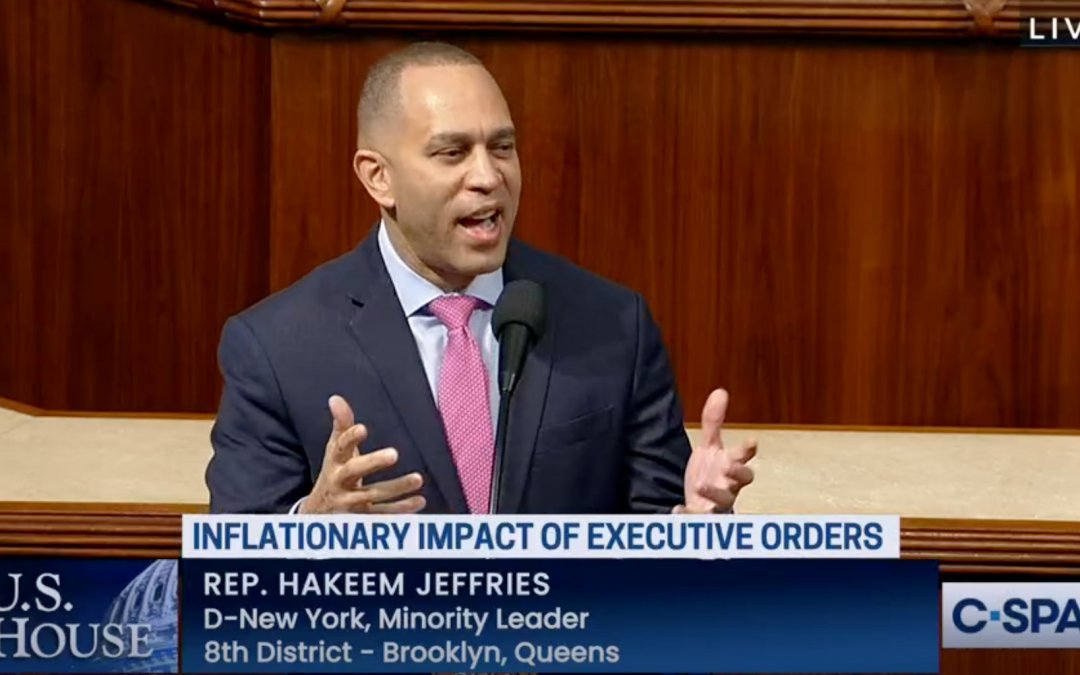WASHINGTON — The Republican-led House garnered bipartisan support for a measure aimed at putting checks on presidential power by passing the REINS Act in a 272-148 vote on Wednesday.
The measure, which stands for Regulations from the Executive in Need of Scrutiny, would require the Office of Management and Budget and the Council of Economic Advisers to inform the president of inflationary effects of any executive order that would affect the budget by at least $1 million.
Rep. James Comer (R-Ky.) said the bill is a necessary step to reduce inflation, which several Republicans claim is a result of President Joe Biden’s 107 executive orders since taking office.
The legislation “ensures that costly actions the president decides to take solely under his own authority under executive order will not go into effect until he’s informed of and considers the inflationary effects,” Comer said.
Though the bill got several Democrats on board, leaders of the party slammed the legislation as a waste of government resources, saying it isn’t a tangible solution to address inflation costs.
The bill, however, has not passed in many previous sessions of Congress, so may not move through the Democratic-controlled Senate. In addition, it is unlikely that Biden would sign the measure into law.
Rep. Hakeem Jeffries (D-N.Y.) said the legislation is not designed to provide meaningful solutions to economic concerns. He said his party members have been waiting to see Republicans “big, grand” plan and this legislation is consistent with their lack of focus on real “kitchen table, pocket book concerns of American people.”
“The bill is three pages, and what does it call for? It calls for reports,” Jeffries said. “You’ve been focused on the wrong things.”
Rep. Elise Stefanik (R-N.Y.) asserted that many of Biden’s executive orders fueled the inflation crisis, and this bill would require the president to acknowledge his role in inflation.
“This is about transparency to the American people,” Stefanik said.
Rep. Cori Bush (D-Mo.) said House Democrats have implemented several tangible pieces of legislation to help families with rising costs of living.
“We’ve seen how people’s lives improve when government stepped up to enact a moratorium on evictions or sent urgently needed stimulus checks to families or expanded the child tax credit or cap insulin at $35 a month,” Bush said. “Those are the actions that saved lives, that’s what we need and we need more of that now.”
Several amendments were adopted as part of the vote, including one from Rep. Lauren Boebert (R-Colo.) to require inflation estimates to be made publicly available, and one from Rep. Scott Perry (R-Calif.), which decreased the amount of major executive orders affected by the bill from $1 billion to $1 million.
Some Democratic House members attempted to amend the legislation to use different economic indicators to provide assessments of the potential budgetary effects of executive orders, but all of their amendments were rejected.
Rep. Ilhan Omar (D-Minn.) introduced an amendment that would require the legislation to use “Genuine Progress Indicator” economic measure tools, which she said would provide a more accurate and inclusive assessment of the economic well-being of all Americans.
“It would give us the chance to finally account for important but overlooked aspects of society like wealth distribution, economic sustainability and the overall quality of life for everyday Americans,” Omar said.

